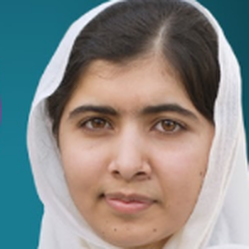|
The girl was 12 or 13 years old, an Afghan refugee whose parents had been killed when their village was bombed, she fled to the border of Pakistan with some relatives.
Steve McCurry, a famous war photographer, took the photo that changed the face of the Afghan war. But he never knew her name, until years later a search went out for the 'girl with the sea green eyes'. Eventually they found a war-hardened woman, named Sharbat Gula, her eyes as piercing and challenging as in the original photo. You can read the full, fascinating story (and the original, 1985 story) on the National Geographic website: http://ngm.nationalgeographic.com/2002/04/afghan-girl/index-text they also have a great little movie that explains it all. I have chosen to exhibit this picture here for several reasons. Firstly, since I first saw this photograph, like many others before me - and others yet to come - I fell in love. How can you look away from those eyes that speak the unspeakable? Yet at first I never knew the full story. I recently trained to take groups of tourists around Russia, and it was learning Russian history that piqued my interest in this mysterious girl once again. The Afghan war was called the 'Dirty War', associated with the might of Soviet Russia crushing the ill-prepared Afghanistan. It motivated the rest of the world to get involved and eventually led to the end of the USSR. I watched the movie 'Charlie Wilson's War' (Tom Hanks- recommended!), about the Afghan war in the 80s. At the end of the movie Charlie tries to persuade the US government to give a little extra to build up war-torn Afghanistan and not just liberate her then abandon her, as this will cause problems later on. But, as Charlie says, 'we fucked up the end game.' And so today- the armies are back in Afghanistan, and the young girl in the picture is now around 40, and nothing much in her country has changed. What is striking is that she never knew the effects she was having on the world with her 'sea green eyes'. What good did it do her? Or her country? As I tell my groups in Russia - for some, at least, the Cold War never really ended. What is inspiring about the story is that when Sharbat Gula was found, she didn't really want her photo taken again, for fear of being associated with foreigners, and because a Muslim woman should be modest. But she accepted because she knew it would bring the story to light again, bring the world's attention once more to the humanity behind the war, and hopefully because it will help her country. Sharbat did it because she was promised medicine for her husband and children, and education for her two little girls. A mother, a wife, a proud Afghan, and an inspiration. This time, let's not 'fuck up the end game.'
0 Comments
Malala Yousafzai is one of the most inspiring young people in the world. I recently read her biography ‘I am Malala’, which she wrote, in a beautiful voice, when she was 16 years old. Malala is from Swat Valley in north-eastern Pakistan, an area that has been overrun by the Taliban. Her father believed in giving his daughter the same rights and the same education that any boy should get. He encouraged her to make the most of school, which she loved, and he bravely spoke out against the Taliban when they started to restrict women and girls access to education. Malala followed in her father’s footsteps and found a voice for herself against the injustices suffered in her land at the hands of the Taliban. She particularly spoke out for the rights and education of girls. On the 9th October 2012, as Malala was coming home from school, on the bus with all her friends, a man pulled a gun out and shot her in the head. She was 15 years old. Miraculously she did not die. Her father rushed her to hospital where a Western physician stabilised her. But she could not get the treatment she desperately needed in Pakistan. The whole world held their breath as the Queen of Saudi Arabia lent Malala her private jet, kitted out with the medical equipment she needed, and flew her to Birmingham, England for treatment. Where slowly, slowly, she made an amazing recovery. Her mother and father were flown to Britain and given a house in Birmingham, and told not to go back to Pakistan. Malala went back to school, but missed her homeland. In her book Malala says that she does not want to be remembered as ‘the girl who was shot in the head by the Taliban’, but as a young advocate for the basic human right of education. One of the most inspiring things I have ever seen is the speech that Malala made in the UN, speaking for education for all children, everywhere. In 2014 she won the Nobel Peace Prize for her activism in education of children. At age 17 she is the youngest person to win the award. Malala and her father Ziauddin Yousafzai have co-founded the Malala Fund, which helps get children and especially girls gain an education in Pakistan, Nigeria, Jordan and Kenya. For more information about this please go to the website: www.malala.org The below video is of Malala's speech at the UN Youth Assembly, on 12th July 2013- Malala's 16th birthday. It was her first public speech after the attack. The day has been named 'Malala Day.' |
ArchivesCategories |


 RSS Feed
RSS Feed